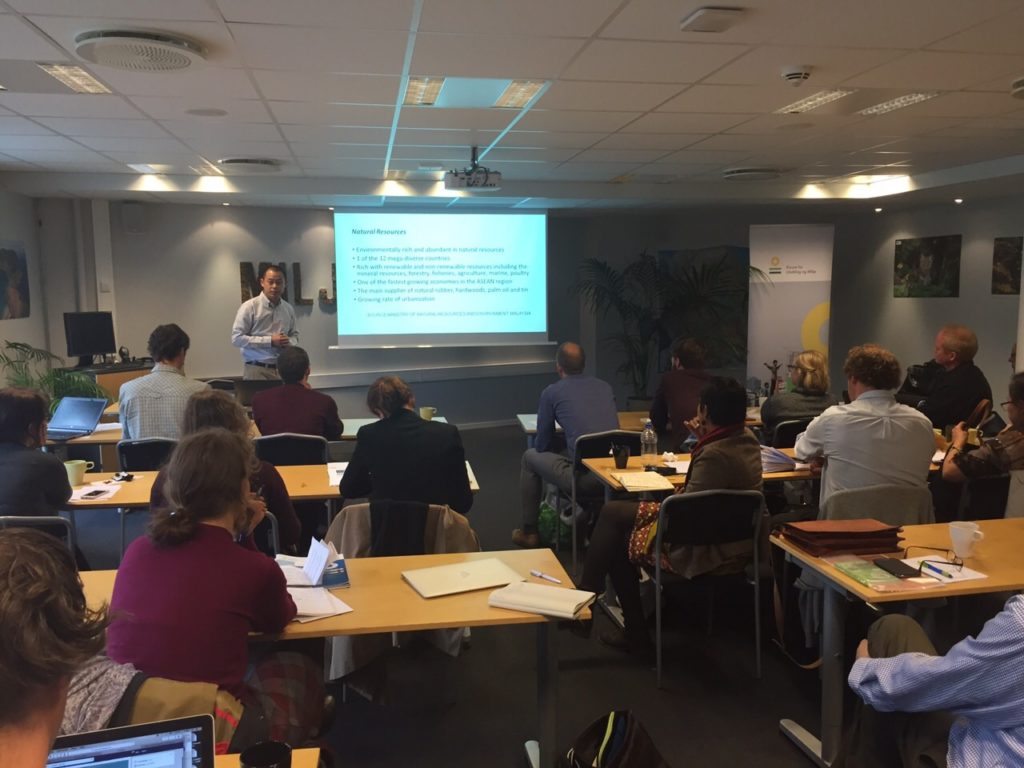Beyond the walls of the UNFCCC
1 June 2015

Adrian Yeo gives a presentation on his CAN Leadership Development Programme study tour in Norway.
Norway is an obvious choice of location for the CAN Leadership Development Programme study tour. The level of environment awareness and sustainable responsibility in Norway is among the highest in the world. While 96% of their local energy source coming from hydro power, they are also the top 10 oil producing countries. It was enlightening to learn how Norwegian civil society organisations work within such dynamics and how we can bring learnings back to our own countries.
We were excited with the dynamic discussion in the seminar on “Net-Zero Emissions” hosted by ‘ForUM for Utvikling og Miljo’. Here we wanted to answer the following questions:
What is the real meaning net-zero emissions ?
What technologies do we have today to achieve net-zero emission?
How is it perceived by various stakeholders?
To start with, we learnt that there are several ways to describe strategies or ways to achieve net-zero emissions. Terms likes geo-engineering, decarbonisation are relatively new terms while Bio-Energy Carbon Capture & Storage (BECCS) has been widely used within the UNFCCC and is more commonly referred to. Camilla Skriung from ZERO presented a case for the adoption of Carbon Capture & Storage (CCS) in Norway and the rest of the world. She argued that decarbonisation is extremely difficult without using CCS in the near future.
Bård Lahn from Regnskogfondet (Rainforest Foundation Norway) reminded us of a different view. He mentioned that one thing often missed out from discussion is the technology to keep the trees in the forest standing. While we filled our mind with the efforts to solve the impending climate crisis, we often forget that prevention is often the best solution.
Pat Mooney from ETC-Group continued by sharing the story about the iron-pumping-plankton growing projects that failed in the past, and similar patterns and worrying paths that can be observed in recent attempt on solar radiation management projects. However he also stressed the potentially shock-knee-jerk adverse decision that may occur in the coming decades if this climate crisis continues.
Then it was our turn, the CAN Leadership Development Program Fellows, Neoka Naidoo from CAN-South Africa and myself Adrian Yeo from CANSEA to share our strategies & challenges on GHG emissions reductions from our respective countries and regions.
This seminar was very encouraging for me. To see the participations from labour unions, university researchers alongside the usual environment NGOs is wonderful. Back in Malaysia, such in-depth discussion on a particular subject only happens within the UNFCCC working groups and only awareness talks happen on a public level. This gave me hope that there is a bigger community that takes the discussion beyond the walls of the convention.

